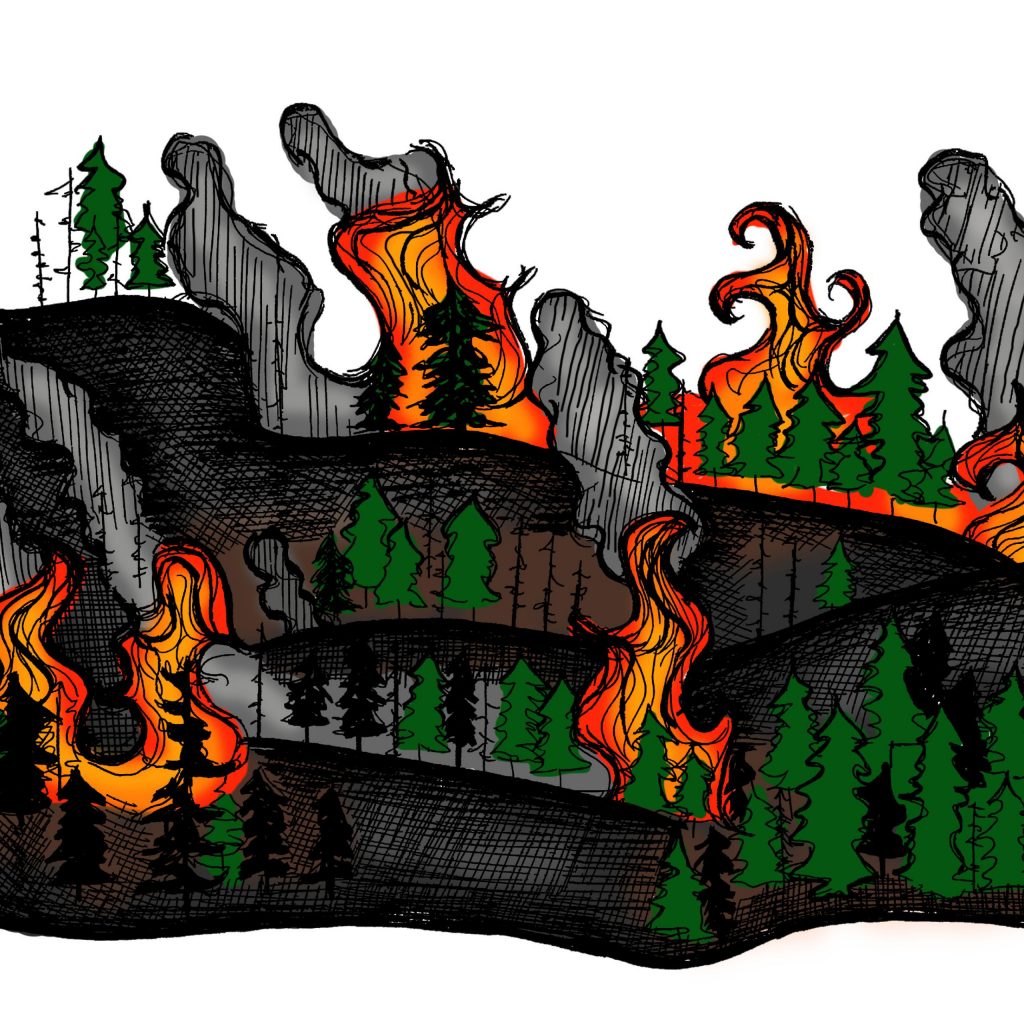During and after the Camp Fire, firefighters rescued hundreds of animals, which included many cats and dogs, and even some pigs, goats, and fish. These animals were rescued from the flames and dark smoke, sometimes singed and hurt, and their owners were thankful to have their pets back in their arms. Since the fire, which broke out on November 8 of last year and was contained on November 25, numerous local Berkeley animal organizations have responded and provided aid to those affected.
Kristen Loomer, the director of operations at Berkeley Humane, stated that the non-profit responded to the wildfire within the first few days of the disaster. “[Berkeley Humane] sent a large load of animal supplies and food directly to displaced victims. This included both dog and cat beds, toys, litter boxes, litter, bowls, leashes, collars, crates, and over 400 pounds of food,” she said. “We also took in 11 felines from the disaster area.” Berkeley Humane was in contact with both organizations and individuals who were working in an official capacity at the government level and also coordinated with Marin Humane for the direct transfer of animals.
Berkeley High School’s (BHS) Pet Awareness Warriors (PAW) Club has also recently given aid to Camp Fire victims. The student-run organization raises funds and donates to local Berkeley shelters, raises awareness on shelter conditions, and gives assistance to the city through volunteer work as directly approved by the Associated Student Body (ASB) Leadership and indirectly by the school principal and the governing board of Berkeley Unified School District (BUSD). The club works with the PAW organization, the Berkeley Animal Care Services (BACS), and the Therapy Pets organization of the Bay Area.
PAW Club Co-President Zadie Jivan stated that the group has been gathering many supplies such as blankets, food, and beds to send to pet shelters in areas affected by the fire in order to best utilize the club and members. “We felt that this aid was more helpful than our regular donation to the BACS shelter in West Berkeley. Pretty much all of our goals [regarding the aid provided by the club] were met,” she said.
The supplies have not been delivered yet this year, but Jivan noted that all the organizations that her club delivered supplies to last year had warmly received them. Jivan believes that the club’s members have worked hard to provide help for the animals who have been harmed in the fires.
Jivan stated that PAW Club is currently looking for new and more innovative and efficient ways to contribute. “The club would like to find organizations whose sole missions are to help pets that have been affected by natural disasters, rather than just donating to shelters,” she said. “We think this would be a more direct strategy to best utilizing our team’s efforts.”
Loomer said that the Berkeley Humane organization provided what aid it could at every interval and that she is pleased by the outcome. “I am proud of our efforts and how we have responded to three large-scale disasters in one year’s time from Hurricane Irma to the Carr and now Camp Fire,” she said. Loomer added that it is difficult for many to resist jumping into a vehicle and racing toward the impacted area when disaster strikes and affects the lives of people and animals. However, she stresses the importance of waiting for the right time to provide aid during emergencies such as natural disasters.
“What is most important to remember in these situations is that one must wait until proper channels for mutual aid needs are established through governing organizations such as the California Governor’s Office of Emergency Services (CalOES),” Loomer stated. She went on to say that without a proper chain of command and documentation of activity, avalanches of supplies can pour in and actually create a disaster within a disaster. Loomer believes that following officially issued directives and requests for supplies will prevent chaos and further displacement of animals. According to Loomer, Berkeley Humane hopes there are no future deadly wildfires in Northern California, especially regarding the safety of pets and other animals. “Unfortunately, the reality is that we will continue to experience large-scale disasters, [but] Berkeley Humane is prepared to respond for mutual aid requests,” she said.


